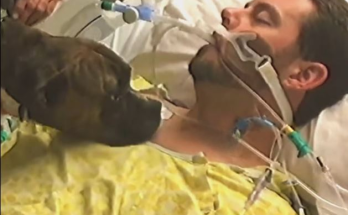When 19-year-old Avery Koonce left her hometown of Tyler, Texas, she carried with her the hopes and pride of her family, her community, and herself. A standout track star and exemplary student, Avery was a young woman driven by ambition, discipline, and an unwavering desire to excel. She had dedicated her life to rigorous training, excelling academically, and preparing for a future of service in the U.S. Air Force. Her journey to the U.S. Air Force Academy in Colorado Springs symbolized the realization of a lifelong dream.
But on September 4, 2024, that dream came to a heartbreaking halt. Avery was found unresponsive in her dormitory room at the Academy. The news sent shockwaves through the campus, leaving classmates, coaches, and mentors stunned, while her family was plunged into grief. What made Avery’s death even more tragic was that, according to medical experts, it may have been entirely preventable.
The Medical Findings: A Rare and Aggressive Infection
An autopsy conducted by the El Paso County Coroner’s Office revealed the startling cause of Avery’s death: sepsis caused by Paeniclostridium sordellii, a rare bacterial infection, which developed as a complication from a viral respiratory illness known as parainfluenza laryngotracheobronchitis. Simply put, she developed a severe case of pneumonia that quickly spiraled out of control.
Avery’s lungs were simultaneously attacked by a virus and a bacteria, overwhelming her immune system. Medical professionals reviewing her case stressed that with timely intervention — including antibiotics and supportive care — her life could likely have been saved.
Renowned forensic pathologist Dr. Michael Baden, former chief medical examiner for New York City, described the situation plainly: “In essence, Avery died of untreated pneumonia.”
He explained that Paeniclostridium sordellii is a particularly aggressive, toxin-producing bacterium. “It’s very uncommon, but it becomes extremely dangerous when the immune system is weakened,” Dr. Baden said. “In Avery’s case, the viral infection compromised her defenses, creating a perfect environment for the bacteria to spread unchecked. There was nothing inherently wrong with her health — this was a manageable illness that simply wasn’t recognized in time.”
A Tragic Result of Dismissed Symptoms
In the weeks leading up to her death, Avery reportedly experienced symptoms that many would consider mild: persistent cough, fatigue, and a low-grade fever. Like many healthy young adults, she may have assumed it was a minor cold or seasonal virus that would pass.
Dr. Baden emphasized the dangers of underestimating respiratory symptoms, especially in young, otherwise healthy individuals. “Nineteen-year-olds often feel invincible. They push through illness because of school, training, and commitments,” he said. “But pneumonia can progress rapidly. Once dangerous bacteria like sordellii enter the bloodstream, it becomes a race against time. Delay can be fatal.”
This tragic reality underscores a broader public health issue. Pneumonia remains one of the leading causes of infection-related deaths in the United States, particularly when bacterial complications occur. Most of these deaths are preventable with prompt medical attention, proper hydration, and early antibiotic intervention.
Avery Koonce: A Life of Promise and Achievement
Avery’s death was particularly devastating because she was the picture of health. She had been a standout athlete at Thrall High School in Taylor, Texas, excelling in track and field. Her impressive sprinting times — 12.12 seconds in the 100 meters and 25.67 in the 200 meters — earned her recognition and recruitment to the Air Force Academy’s track team.
Beyond athletics, Avery was known for her discipline, positivity, and determination. Friends and coaches described her as focused, hardworking, and always willing to give her best. Her social media reflected her pride in her achievements and her excitement about serving her country.
No signs suggested that a serious illness was brewing. Her life, full of promise and ambition, was cut tragically short by a silent and aggressive bacterial infection.
A Family Shattered
The loss was devastating for Avery’s family. Her parents, Eric and Kelly Koonce, released a statement following the autopsy:
Loss coping books
“Avery was a bright light in this world. She brought joy, courage, and compassion to everyone around her. Her absence has left a void that cannot be filled.”
Their words resonated with families everywhere, particularly those with young athletes or students balancing demanding schedules. The tragedy highlighted a harsh reality: even seemingly healthy, vibrant young adults are not invincible against serious infections.
Understanding Paeniclostridium sordellii
Paeniclostridium sordellii is a rare bacterium that produces potent toxins capable of causing severe tissue damage and septic shock. Infections progress at a terrifyingly rapid pace. Early symptoms can resemble common respiratory ailments — mild cough, fatigue, and shortness of breath — which makes timely detection challenging.
Dr. Baden underscored the critical importance of early treatment: “Pneumonia is not something to take lightly. Even young, healthy individuals can deteriorate quickly if bacterial complications develop. Timely intervention can literally mean the difference between life and death.”
The Culture of “Pushing Through”
Avery’s death also raises important questions about the culture at military academies, where physical toughness and resilience are emphasized. Some former cadets have anonymously shared that there is often an unspoken pressure to ignore minor illnesses to avoid appearing weak. While there is no evidence that this cultural expectation directly caused Avery’s death, medical experts suggest that it may have delayed her seeking timely care.
The tragedy serves as a reminder that no ambition, no training, and no achievement can replace basic medical care. Health must always take priority, even in high-performing, disciplined environments.
A Community in Mourning
Avery’s passing prompted an outpouring of grief and support from classmates, teammates, coaches, and teachers. Photos of Avery running, smiling, and enjoying life flooded social media alongside messages urging others to take symptoms seriously and seek medical care promptly.
Her former track coach described her as someone who would always push herself to the limit, even when feeling unwell. “If Avery was sick, she probably wouldn’t admit it,” the coach said. “She didn’t want to let anyone down. That’s the kind of person she was.”
Advocacy and Raising Awareness
In the aftermath of their daughter’s death, Eric and Kelly Koonce have become advocates for increased awareness about pneumonia and severe respiratory infections in young adults.
“It’s not just older adults who are at risk,” Eric explained. “Healthy young people can die from pneumonia if it’s not treated promptly. We want to make sure other families don’t experience the same heartbreak we did.”
Loss coping books
Kelly added, “Avery was strong, smart, and brave. But even the strongest need care. If something feels wrong, don’t wait. Seek help immediately.”
Their advocacy highlights the broader public health message: young adults often underestimate their vulnerability, but illnesses like pneumonia can escalate rapidly. Early recognition and treatment save lives.
Remembering Avery
Avery’s funeral drew hundreds of mourners from her hometown and the Academy community. Teammates wore her track colors, classmates held candles, and the Academy’s honor guard paid final respects. These gestures reflected the profound impact she had on those around her, despite her life being tragically brief.
Even in death, Avery’s story has sparked conversations about improving healthcare monitoring in high-intensity environments like military academies. Discussions are underway about strengthening medical evaluations, increasing awareness of the dangers of respiratory illnesses, and creating programs to encourage cadets to prioritize their health.
Lessons From a Tragedy
Avery Koonce’s death is a stark reminder of the vulnerability that exists beneath physical strength, academic excellence, and youthful vitality. Behind her medals, achievements, and determination, she faced a bacterial infection that should have been treatable. Her story is a call to action for young adults, parents, and institutions alike: never underestimate the importance of medical care, even for seemingly minor symptoms.
Healthcare experts emphasize vigilance: a persistent cough, unexplained fatigue, fever, or shortness of breath should never be ignored. Timely medical intervention, hydration, and antibiotics can prevent complications that turn a treatable illness into a fatal one.
Honoring a Legacy
Avery’s parents continue to honor her memory through advocacy and education, hoping her story will prevent future tragedies. They hope young adults will learn from her experience and understand that no deadline, practice, or responsibility is worth risking their health.
“Avery lived with purpose, joy, and light,” her parents said. “If sharing her story saves even one life, her light continues to shine.”
Her classmates, teammates, and friends remember her for her boundless energy, her positivity, and her drive to succeed. Avery’s story resonates far beyond her community, serving as both a memorial and a warning.
Conclusion: A Life Remembered and Lessons Learned
The loss of Avery Koonce is heartbreaking, but it carries a vital message about health awareness, particularly among young, high-performing individuals. Pneumonia and severe bacterial infections are not illnesses that discriminate by age, fitness, or ambition. Early recognition, timely treatment, and proactive healthcare can mean the difference between life and death.
Avery’s life, though brief, reminds us of the value of vigilance, the importance of prioritizing health, and the fragility of life. She achieved remarkable things in her 19 years — academically, athletically, and personally. While her death is a devastating tragedy, her story may save lives by inspiring others to take even minor symptoms seriously and seek help without delay.
Her legacy lives on through the lives she touched, the inspiration she provided, and the awareness her passing has sparked about preventable illnesses. Avery Koonce may have left this world too soon, but her life continues to illuminate the path for others — a testament to courage, determination, and the enduring importance of health.




